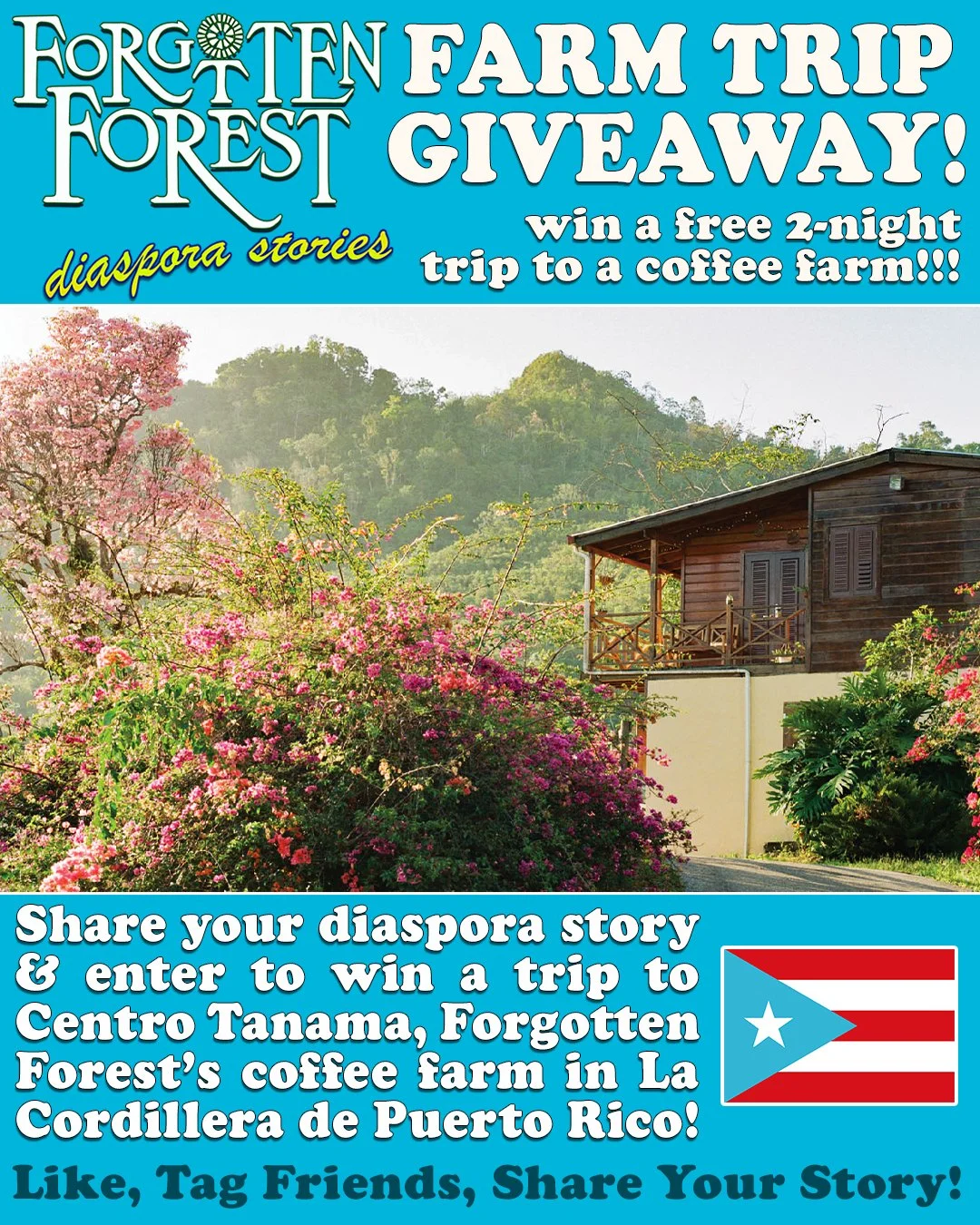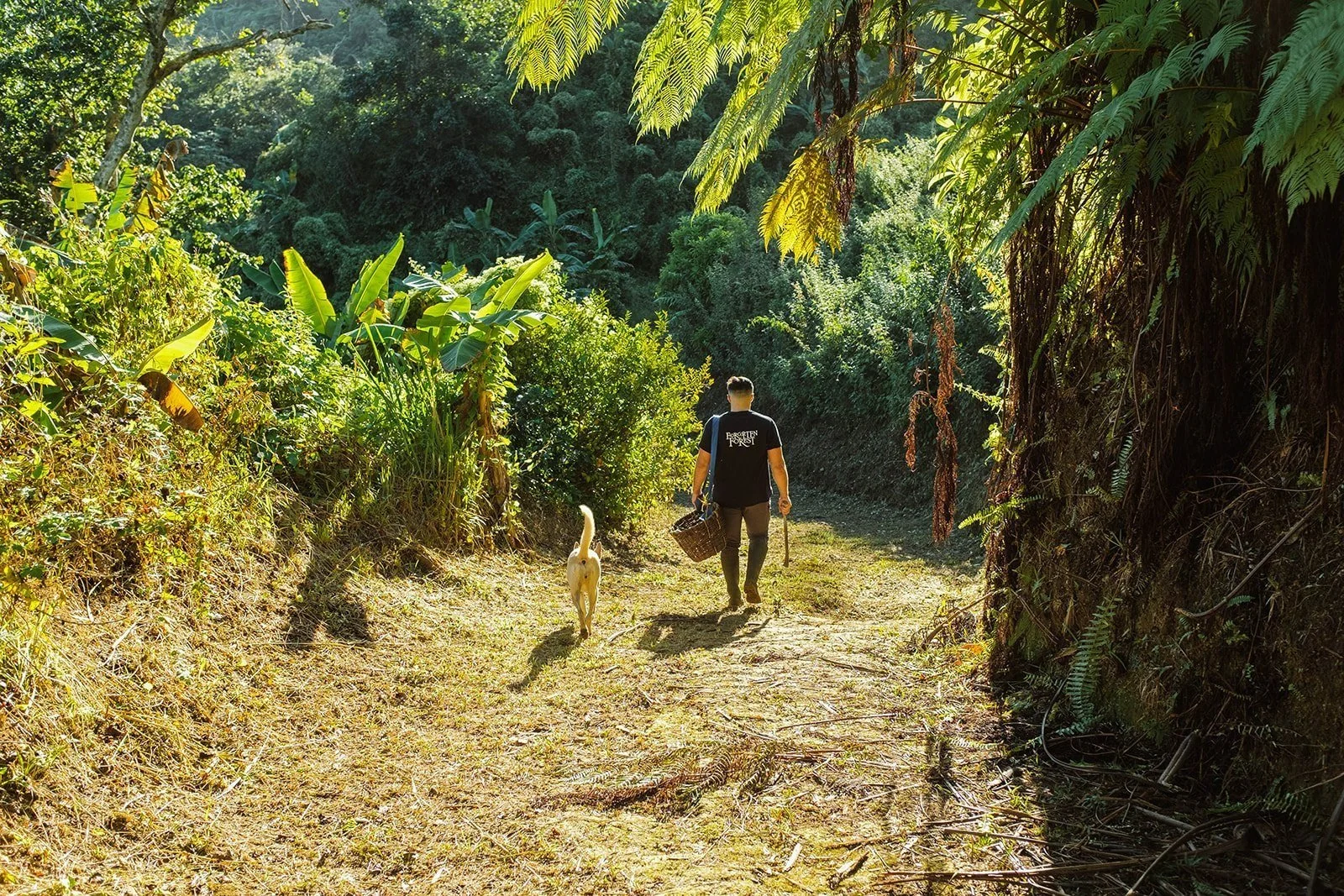Diaspora Stories: An Origin-Trip Giveaway!
Hello, Domenico here, founder of Forgotten Forest, based at our headquarters, Centro Tanama in Adjuntas, Puerto Rico. Last week we announced our #Diasporastories campaign. We envision the project overall as a Rematriation initiative and our participation in a lively dialogue on the diverse experiences and dynamic nature of the Puerto Rican identity. In the initiative, we are asking members of the Puerto Rican and Caribbean diaspora to submit 30-90 second videos responding to one of three questions about their to identity and how their heritage plays a role in their life. After this first round, we’ll randomly select one winner based in the continental U.S. and one winner based in Puerto Rico to join us for an immersive weekend trip to Centro Tanama in Adjuntas. Winners will experience all areas of our project from our community nursery and composting sites, to visits to our close farm partners, unique ecological excursions, and cultural experiences. While the experiences will all serve to facilitate connection with the land and culture of Puerto Rico, we will lend particular focus to La Cordillera de Puerto Rico.
In today’s post, I delve into the motivations behind the Diaspora Stories Project and share my aspirations for it. First, I’ll provide a bit of background on my own diaspora journey.
As a Puerto Rican of the diaspora, I spent most of my childhood in New York with my brother and sister. However, we also cherished our summers in Puerto Rico, particularly on the West side of the island in places like Aguadilla, Isabela, and Aguada, where we stayed with our abuelos and other relatives. Having our abuelos present for the majority of the school year added a unique dynamic to our household, bridging the gap between the island and the city.
My parents, both small business owners, were always on the go. Having our abuelos around ensured that Spanish language, cooking, history, political dialogue, and culture were integral parts of our upbringing. Even at a young age, I recall taking note of the stark differences in quality of life across measures such as healthcare and poverty, between my island-based and state-side family.
Transitioning into high school and college, my dream of returning to live in Puerto Rico became stronger. Initially, I envisioned retiring on the island, but as I delved into the political, economic, and social dimensions of Puerto Rican life, my perspective evolved. Contrasting the experiences of my Puerto Rican family in New York with those in Puerto Rico highlighted the disparities and sparked ideas for collaboration.
In college, I initiated a project that later evolved into my senior thesis and graduate work, focusing on food systems and policy in the Caribbean Basin and Puerto Rico. The initial project traced the political-economic history of Puerto Rico to uncover the issues, events, and dynamics that plagued agriculture on the island. Then, my thesis explored the potential for specialty and value-added agriculture under cooperative and collective systems to empower small farmers on the island.
This project marked my first entry into Puerto Rico, as an individual rather than part of my family’s collective circular migration. Since then, I have been residing here full-time for approximately five years. At our farm in Tanama, Adjuntas, we have cultivated a network of young farmers who share a passion for agriculture and cultural preservation. Through collaboration and systemic changes, we aim to build a brighter future for Puerto Rico, emphasizing the importance of reconnecting with our roots and the land.
We believe that unity among those living on the island and the diasporic Puerto Rican community is essential for Puerto Rico's success. The Diaspora Stories Project serves as a platform to showcase the diverse experiences of Puerto Ricans and foster dialogue about cultural identity and transformation. By providing opportunities for individuals to reconnect with Puerto Rico in new ways, we aim to strengthen the bonds of the Puerto Rican community and showcase its excellence to the world.
Through this project, we hope to inspire individuals to explore viable paths back to the island and contribute to its growth and transformation collectively. This is the essence of what the diaspora can achieve.
If you’re interested in participating in the competition, helping to amplify this message, and/or supporting Forgotten Forest in providing these kinds of transformative experiences to more individuals in our community, please reach out to me directly.



